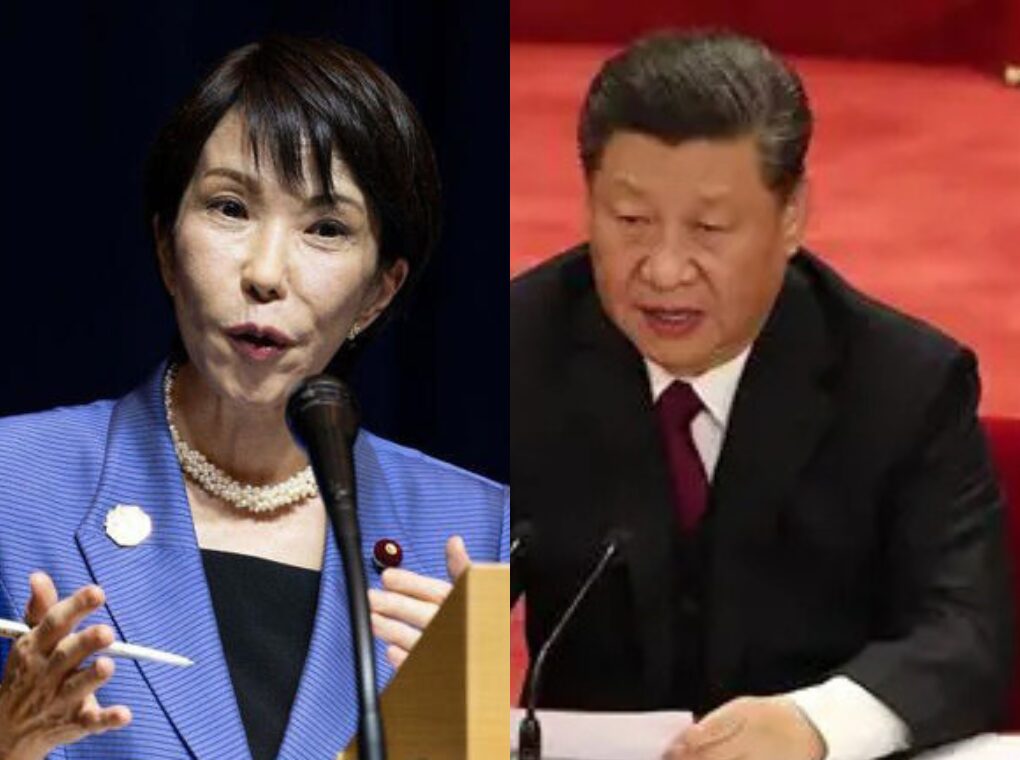Japan has ignited a geopolitical firestorm after reports emerged that Prime Minister Sanae Takaichi is considering revising the country’s long-standing Three Non-Nuclear Principles, a move that could allow the deployment of U.S. nuclear weapons on Japanese soil. The prospect, unprecedented in the postwar era, has triggered immediate and furious backlash from China, which warned that the shift sends a “dangerous signal” to the region.
Takaichi, who took office less than a month ago, has not committed to retaining the original wording of the principles—not possessing, not producing, and not permitting nuclear weapons—in upcoming national security documents. Government insiders say only the third pillar, which bans the entry of nuclear assets into Japan, is being reviewed. The goal, they claim, is to strengthen the credibility of the U.S.-Japan nuclear umbrella amid mounting threats from China, North Korea, and Russia.
The debate marks the most serious challenge in decades to Japan’s postwar identity, which has been defined by pacifism since the devastation of Hiroshima and Nagasaki.
China Erupts: “Reviving Militarism”
Beijing’s reaction was swift and severe.
Chinese Foreign Ministry spokesperson Lin Jian accused Tokyo of “abandoning its commitment to peace” and warned that any shift in nuclear posture would undermine regional stability. State media outlets, including Xinhua and Global Times, escalated accusations that Japan is “reviving militarism.”
In a rare escalation, China summoned Japan’s ambassador and issued new travel advisories warning citizens about visiting Japan. The Chinese Consul General in Osaka sparked outrage with a social-media post stating:
“The filthy head that recklessly intrudes must be cut off.”
Tokyo has lodged a formal protest over the remark.
Rising Threats Push Tokyo to Rethink Security
Japan’s reassessment comes amid unprecedented tension across the Indo-Pacific:
China’s nuclear arsenal is expanding rapidly and is projected to exceed 1,000 warheads by 2030.
North Korea has launched more than 100 missiles this year, including advanced hypersonic and submarine-launched systems.
Russia continues nuclear signaling as its alignment with China deepens.
Prime Minister Takaichi has repeatedly warned that a Chinese invasion of Taiwan would be a “survival-threatening” scenario for Japan. Discussions inside the ruling Liberal Democratic Party also extend to acquiring nuclear-powered submarines, further fueling anxieties in Beijing.
Domestic Backlash: Pacifism Under Strain
Inside Japan, the proposal has provoked intense opposition.
Survivors of the Hiroshima and Nagasaki bombings condemned the move as a betrayal of Japan’s moral responsibility. Opinion polls show over 70% of Japanese citizens want the Three Non-Nuclear Principles preserved without change.
Opposition parties accused Takaichi of pushing Japan onto a “dangerous and unnecessary path,” with former Prime Minister Yoshihiko Noda warning that revising the principles risks triggering an arms race.
Even some LDP moderates are uneasy, fearing Japan may be sliding toward a broader rearmament agenda.
Washington Quietly Supportive
While the U.S. has not issued an official statement, officials in Washington privately view the discussion as a positive step toward enhancing deterrence in the Indo-Pacific. Former U.S. administrations have long urged Japan to assume a larger security role, including loosening constraints on American nuclear operations.
A change would allow temporary U.S. deployments—such as nuclear-capable bombers or submarines—without Japan developing its own arsenal.
A Regional Tipping Point
Analysts warn that any revision to Japan’s nuclear policy would reverberate across the region:
South Korea may intensify its own nuclearization debate.
China and North Korea could accelerate missile and warhead production.
ASEAN nations fear a destabilizing arms race.
Non-proliferation agencies caution that the Nuclear Non-Proliferation Treaty could face new strains.
The issue is not merely symbolic—Japan’s shift could redefine the entire security architecture of East Asia.
Uncertain Road Ahead
For now, Japan is only reviewing its nuclear stance, not changing it. But the mere possibility of hosting U.S. nuclear weapons—long considered unthinkable—signals a dramatic transformation in Tokyo’s strategic mindset.
With tensions high over Taiwan, rising mistrust with China, and anxiety mounting at home, Japan stands at a historic crossroads. The decisions made in the next year could reshape global security for decades.
